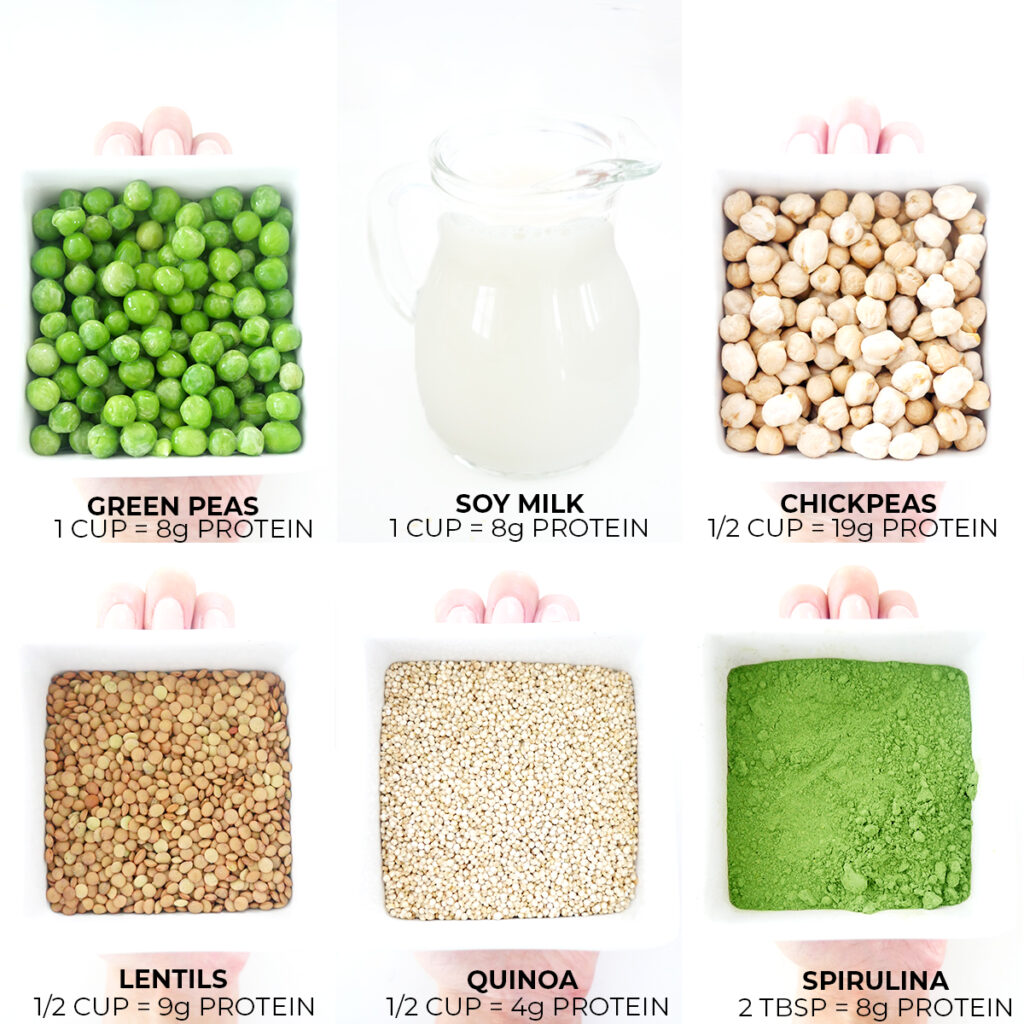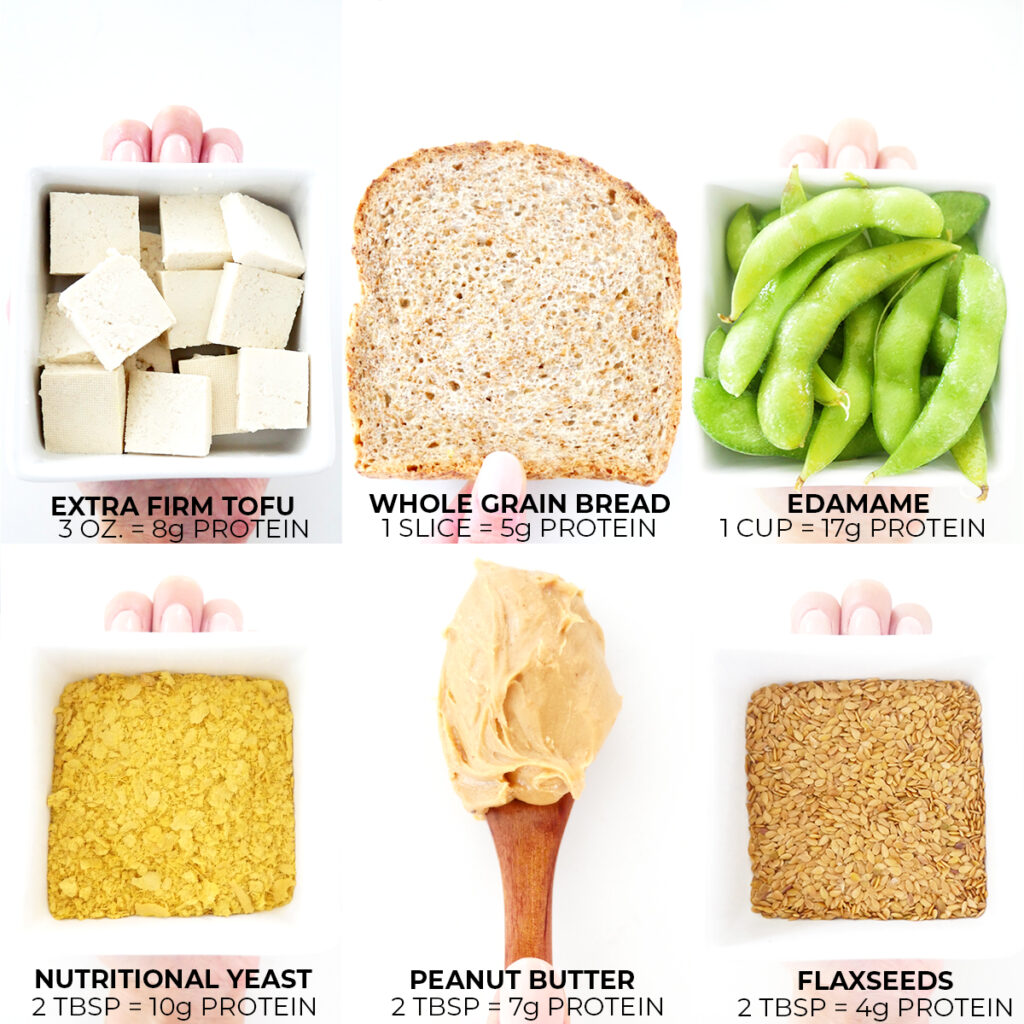
Plants have protein too! Protein is an important macronutrient, traditional to be thought of for just professional athletes, but every one and every body need protein.
Protein helps fight infections and made antibodies, carry fats, vitamins, minerals and oxygen around the body, build and contract muscles and more. Depending on your caloric needs, dietitians recommended about 5 to 7 ounce equivalents of protein foods per day comes from meat, poultry, eggs, seafood, nuts, seeds and soy products. Intakes of protein foods generally meet or exceed recommended intake levels. The exact protein recommendation will depend on your weight and activity level – .8 grams of protein per kilogram of body weight.(or .36 x your weight in lbs) – and higher for athletes or those who are active. The RDA is the amount of a nutrient you need to meet your basic nutritional requirements. In a sense, it’s the minimum amount you need to keep from getting sick — not the specific amount you are supposed to eat every day.
Complete versus incomplete proteins
Yes, animal proteins are considered complete proteins (meat poultry fish dairy) while plant-based proteins are incomplete with a few exceptions notably – soy, whole sources of soy (tofu, edamame, tempeh, miso) quinoa and hemp. A food is considered a complete protein when it contains the nine essential amino acids that our body cannot produce on its own. Amino acids are the building blocks of protein. There are 20 different amino acids 11 produced by our bodies. The other nine – the so-called essential amino acids – we need to get through food. Including a wide variety of plant foods such as legumes, lentils, nuts, seeds and whole grains on a daily basis will allow for you to get the complete protein you need. You don’t need to mix and match incomplete protein to create a complete protein at every meal.
Try incorporating these nurtient-dense sources of plant-protein!
Tofu: I like House Foods made with US grown non-GMO soybeans. Tofu is mild in taste and takes on the flavors you cook it with so you can get creative.
Whole grain bread: sprouted whole grain bread is typically higher in protein and lower in carbs than its counterparts.
Edamame: one of the richest sources of plant based protein and can be enjoyed as a snack or salad + stir-fry addition.
Nutritional yeast: my favorite plant-based cheese substitute. Add it to a pasta sauce or sprinkle onto popcorn (my fave).
PB: a convenient source of plant protein that can be added to oatmeal, toast or paired with fruit.
Flaxseeds: easy to add to smoothies or as an egg replacement in baked goods.
Green peas: keep a bag of frozen peas in the freezer to easily bump up the protein of salads and sautés.
Soy milk: an easy plant-based milk choice when looking for one particularly high in protein.
Chickpeas: chickpeas are mild in taste and added to baked goods allow you to bump up the fiber and protein and lower the fat.
Lentils: add to soups, stews & salads.
Quinoa: try quinoa in lieu of other grains for a protein-rich option.
Spirulina: add to fresh fruit smoothies for a boost of protein and antioxidants.

